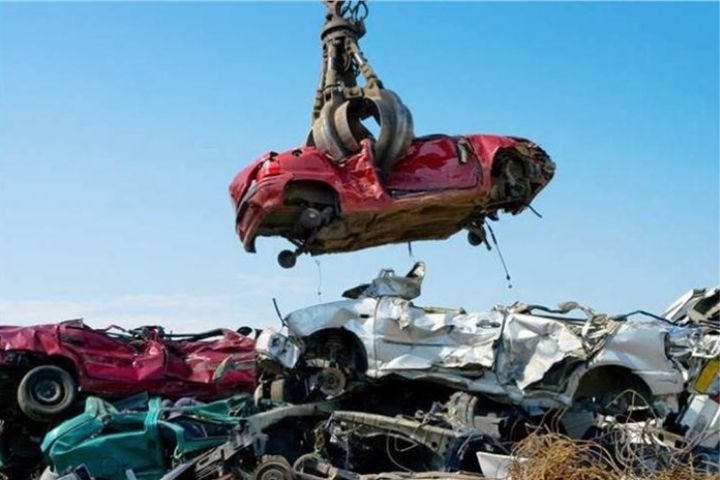Introduction
If you have an old vehicle that’s gathering dust in your garage or driveway, selling it for scrap metal can be a smart financial decision. While the prospect of parting with your beloved car may seem daunting, knowing how to navigate the process can help you maximize your returns. In this article, we will guide you through the steps involved in selling your car for scrap metal, ensuring you get the best possible deal.
Understanding the Value of Scrap Metal
Before delving into the process, it’s essential to understand how the value of scrap metal is determined. Several factors influence the price you’ll receive, including the current market demand, the weight and type of metal in your car, and its condition. Typically, steel is the most commonly recycled metal, but other valuable metals such as aluminum, copper, and brass can also contribute to the overall value.
Factors Affecting Scrap Metal Value
- Market Demand: The demand for different types of metals fluctuates based on various factors, including economic conditions and global trends. Staying updated on market conditions can help you gauge the potential value of your scrap metal.
- Weight and Metal Type: The weight of your vehicle and the type of metal it contains play a crucial role in determining its value. Generally, heavier vehicles will yield more scrap metal, but the type of metal also matters. For example, copper and aluminum tend to be more valuable than steel.
- Condition of the Vehicle: The condition of your car affects its scrap metal value. Vehicles with significant damage or missing parts may be worth less than those in better condition. However, even if your car is in poor shape, it can still be valuable for its metal content.

Steps to Sell Your Car for Scrap Metal
Now that you have an understanding of scrap metal value, let’s explore the steps involved in selling your car for scrap metal and maximizing your returns.
1. Research Local Scrap Yards
Start by researching local scrap yards or recycling centers in your area. Look for reputable and licensed facilities that accept cars for scrap metal. Read reviews and gather information about their pricing policies and procedures. Contact multiple scrapyards to compare prices and choose the one offering the best deal.
2. Gather Essential Documents
Before selling your car for scrap, gather all the necessary documents. These may include the vehicle title, registration, and any other legal paperwork required by your local authorities. Ensure that you have proof of ownership and clear any outstanding loans or liens on the vehicle.
3. Remove Personal Belongings and Prepare the Car
Thoroughly clean out your car, removing any personal belongings or valuables. Check all compartments, trunk, and glove box to ensure nothing is left behind. Additionally, remove the license plates and cancel your insurance coverage for the vehicle.
4. Assess the Vehicle’s Value
To estimate the value of your car for scrap metal, consider its weight and metal composition. Contact the scrap yards you researched earlier and provide them with details about your vehicle, including its make, model, year, and any additional features. They will be able to provide you with an approximate value based on the current metal prices.
5. Schedule the Pickup or Delivery
Once you have chosen a scrap yard and agreed upon the price, schedule the pickup or delivery of your vehicle. Some scrapyards offer towing services, while others may require you to deliver the car to their facility. Make sure to clarify the logistics and arrange a convenient time for both parties.
6. Complete the Sale and Documentation
When the scrap yard arrives or you deliver the vehicle, ensure that you receive a receipt or invoice for the transaction. This document should include details such as the agreed-upon price, vehicle description, and the scrap yard’s information. Keep a copy for your records.
7. Cancel the Vehicle Registration and Insurance
After selling your car for scrap, contact your local motor vehicle department to cancel the vehicle registration. Additionally, inform your insurance provider about the sale and cancel the insurance coverage for the vehicle. This will prevent any future liabilities or expenses associated with the car.
8. Environmental Considerations
Selling your car for scrap metal is not only financially beneficial but also environmentally responsible. Scrap metal recycling reduces the demand for new metal production, conserves natural resources, and minimizes the energy required for manufacturing. By choosing a reputable scrap yard, you contribute to the sustainable reuse of materials.
Conclusion
Selling your car for scrap metal can be a profitable endeavor, providing you with a way to dispose of your old vehicle while earning some extra cash. Understanding the value of scrap metal and following the steps outlined in this guide will help you maximize your returns. Remember to research local scrapyards, gather the necessary documents, prepare your car, and complete the sale with proper documentation. By taking these measures, you can ensure a smooth and rewarding experience when selling your car for scrap metal. For more details, check out Cash Cars Buyer!
Also Read: 5 Tips For Maintaining A Leased Car
New Nissan Kicks Spied Testing For First Time






